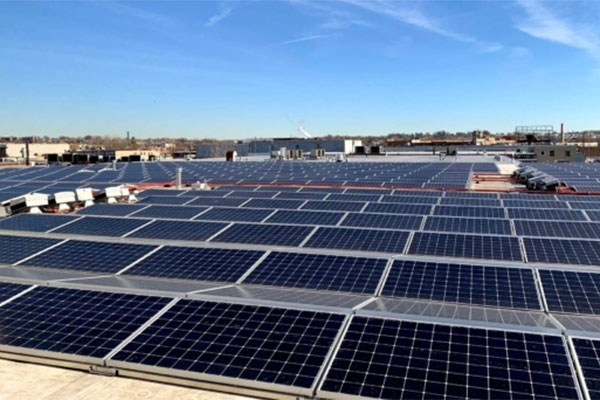This was a year that challenged us in ways we never could have imagined.
At Cherrytree we’re hardly alone in that assessment, yet all of us feel fortunate to have remained healthy and productive throughout a year that will be fondly remembered by…almost no one.
Here’s how 2020 played out for us:
In order to weather the storm and survive what had become a truly transformed world, the Cherrytree team needed to quickly implement wholesale changes to existing business plans and to pivot to alternate strategies. This required a sober risk assessment, as we faced challenges that would need to be addressed with nothing short of a complete regeneration.
For those of us connected to the real estate industry, the COVID-19 pandemic disrupted construction projects that were already underway, displaced planned projects, derailed financing and threatened the economic stability of newly completed projects.
For tax credits that required issuance by a governmental authority, such as the Departments of Revenues of individual states, such approvals were, invariably, postponed indefinitely. This was problematic for companies like Cherrytree: that retain a large inventory of filed state credits. We now held a large receivable over which we had no control, and — during the COVID shutdown and beyond — no ability to collect on the receivable.
Moreover, COVID’s devastation of the hospitality industry affected several projects for which Cherrytree consulted or was invested: particularly hotel construction projects.
Having no choice but to find alternative business opportunities, we focused on projects which tended to be insulated from larger world events. In the spring, we closed on a tax credit acquisition for a historic building in Harlem that generated approximately $2 million in historic tax credits. We also closed on the sale of Florida Voluntary Cleanup Tax Credits (VCTC) for a Tampa-based developer.
We are proud of these two transactions as they represented financings that were accomplished during the period of the most severe of 2020’s COVID restrictions, and they also represented a continuation of Cherrytree’s expansion into other U.S. states — an initiative we started in 2019.
One of those 2019 ventures had been a hybrid tax credit transaction in Indiana. Our firm had made an initial equity investment in this project, which was eligible for low-income housing tax credits and historic tax credits. However, in the first quarter of 2020, at the height of the crisis, we were required to finance construction draws or face the potential shutdown and derailment of the project. Our team spun into high gear, and we were able to raise and close on our financial obligation of over $2.5 million, resulting in the on-time and on-budget completion of renovations and the delivery of 49 apartments to low-income families.
The year 2020 also brought us an experience which we had avoided for Cherrytree’s entire existence. A developer in whose project we had invested defaulted on their construction loan and was ejected from the project by the lender; leaving the development to teeter on the verge of collapse and, with it, the loss of our investment. This project was a commercial-scale solar installation which was to power the common areas of a large senior home development in Central Florida. Again, our team sprang to action to reconfigure the deal; working with existing stakeholders as well as newer, stable partners from the pool of investors we have helped over the years. Together, we succeeded in taking over the project from the initial lender and completing construction ourselves.
It’s ironic how often a difficult challenge turns into a blessing. Having to dig into the intricacies of the commercial solar industry ended up pushing us as a company towards an even larger focus on renewable energy — especially in solar power financing and tax credit acquisition. I would like to think that this tilt toward the renewable energy industry might have been the tipping point for Cherrytree’s own renewal as well. Suddenly we were uncovering new opportunities in the solar sector. For example: in the second half of 2020 we raised the financing for a solar power fund that will be the capital source for $8.5 million in projects generating 5.5 megawatts of solar throughout New York, New Jersey and Connecticut.
Most of the renewable energy projects in which we invested last year were in the form of Community Solar Farms, which unlike PPA projects (Power Purchase Agreements, which have a single off-taker/purchaser) provides electricity to individuals, just as our funds provide tax credits and other benefits to individual investors. Solar facilities generally provide electricity to consumers at a price far less than they would ordinarily pay to a utility company for their energy needs.
It was welcome news to read the other day (Boston Globe, January 4, 2021) that “Boston is finally ready to join dozens of other cities and towns in the region by pooling its residents together in a bid for greener energy.” This sentiment most accurately portrays the basis for community solar initiatives and supports our belief that we are better served in a post-pandemic world with renewable energy sources and development.
At Cherrytree, we are proud that in such a difficult year we were able to generate a tax credit volume of $14 million, keep our employees safe and viable, and support our mission of environmental clean-ups, delivery of affordable housing, and preservation of historic buildings. Moreover, we take satisfaction in being a part of a growing movement toward a greener, cleaner, environment. A combined private/public community coming together to harness natural energy is a perfect synonym for a bright future beyond this pandemic.
We hope 2021 will be a welcome change for all of us, and that we can advance positive goals and energy to benefit our clients — and the world in general. As always, we at Cherrytree remain ready to discuss planned projects and investments and to explore the wide array of emerging and fascinating opportunities.

Warren founded Cherrytree in 2011 and has spent the past eleven years building a highly specialized tax credit consultation, brokerage, and syndication firm. He has relied on three decades of experience and a law background to focus on the structural and development finance aspects of tax incentivized real estate-based transactions — particularly in the environmental remediation (Brownfields), renewable energy, and historic rehabilitation areas.


